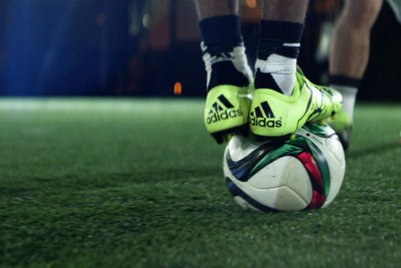
HTC was one of the most successful and most profitable OEM suppliers, and equally ambitious.
The company's move to transform from an OEM to a branded industry player was perhaps the most significant and the biggest strategic mistake which contributed to its downfall. Many in the company were reluctant about the strategic shift, while investors were clear in their disapproval—share prices halved after the change in strategy was decided upon and declared in 2007.
The investors’ worries weren’t exactly baseless, and multiple issues soon surfaced:
- HTC’s clients (including Siemens, O2, Vodafone and various others) would no longer purchase HTC's OEM products if they were in direct competition in the branded space.
- HTC would therefore have to start spending significant amounts on marketing and more on R&D than it had been spending in the past. Between 2005 and 2008, marketing investment rose from 1 per cent of revenues to 6 per cent. R&D increased from 3 per cent to 6 per cent.
- The impressive OEM margins of around 20 per cent—compared to around 5 per cent for other OEM players—quickly disappeared owing to significant increase of costs across the board.
- Unlike Huawei, HTC always focused on a far more competitive international expansion, versus developing a safe, incubator market by in underserved and more rural markets in China.
The gamble didn’t pay off.
By expanding to its customers’ markets HTC put its core OEM offerings in jeopardy. It was clear that HTC did not have enough resources to continue on its previously ambitious marketing and research, outlined above.
Can it be helped?
It would be unfair to comment on what strategic changes HTC should be making in the next few years. However, I am certain that it would be a mistake to assume the brand has no value. It has relatively high awareness in Western (as well as emerging) markets, and the technology sector is highly fickle. If the company can weather this storm, it is still in a relatively good position to develop into a global brand.
Brand Finance’s globally published brand value for the HTC brand, though significantly down from US$4.01 billion in 2012, now stands at $1.44 billion.
[HTC dropped from No. 122 in 2014 to No. 131 in Campaign Asia-Pacific latest Asia's Top1000 Brands ranking. -Ed.]
What next?
One possible option for the brand is to restart slowly in core markets with great products, marketed well.
HTC’s One M8 won t3’s 'Phone of the Year' award in 2014, and HTC’s other products are frequently featured for their quality. Successfully communicating that will be the key.
Another, perhaps complementary, option would be to connect and capitalise on East Asia, which is synonymous with high-quality technology products. Such an alignment could help capture some of that latent brand equity in the minds of Western consumers.
Ultimately, brand strategy requires long-term planning, good quality products, extensive communication and work on creating emotional connection with customers. HTC should stop trying to do all things at once. By expanding too quickly, it limited its ability to make itself a leader anywhere. It needs to find its niche and focus on it.
 Samir Dixit is managing director of Brand Finance, Asia-Pacific
Samir Dixit is managing director of Brand Finance, Asia-Pacific
HTC's campaign starring Robert Downey Jr (playlist has 20 videos, but most are 6 seconds long):


.jpg&h=334&w=500&q=100&v=20250320&c=1)



.png&h=334&w=500&q=100&v=20250320&c=1)

.png&h=334&w=500&q=100&v=20250320&c=1)

.png&h=334&w=500&q=100&v=20250320&c=1)

.jpg&h=268&w=401&q=100&v=20250320&c=1)



.jpg&h=268&w=401&q=100&v=20250320&c=1)
.png&h=268&w=401&q=100&v=20250320&c=1)

